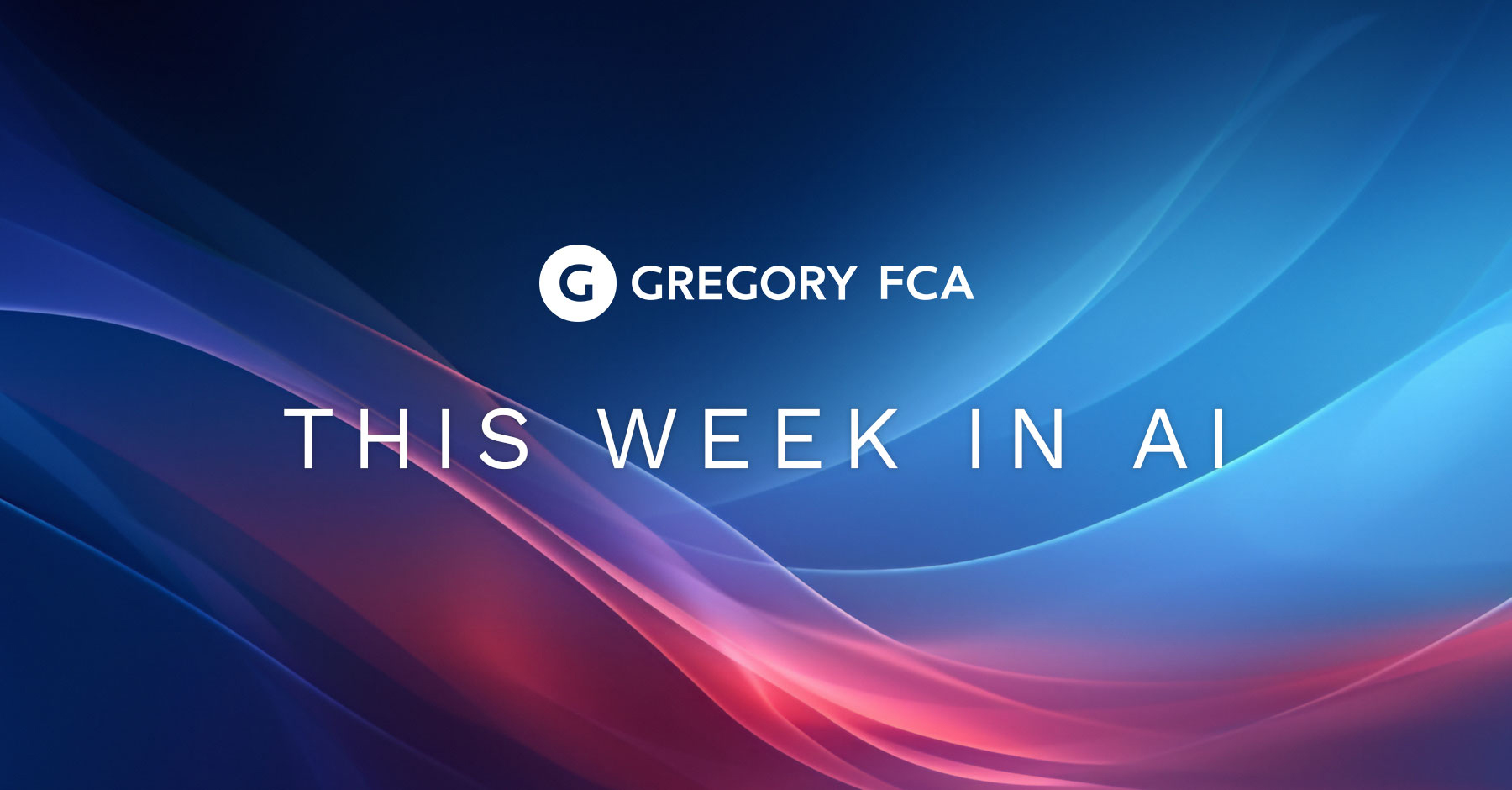Headlines You Should Know
What to Expect from AI in 2024
Artificial intelligence went mainstream last year with rapid-fire new developments. Some of them will change the way we work for the foreseeable future — like the effortless image creation of DALL·E or tailored GPTs that work within specific confines — while others … let’s just chalk it up to trial and error (still looking at you, Google Bard).
So what’s on the horizon? OpenAI CEO Sam Altman says not to expect artificial general intelligence, his company’s holy grail, this year. A better place to start may be with the information AI tools use. OpenAI’s partnership with Axel Springer means ChatGPT can cite news organizations like Politico and Business Insider without fear of legal repercussions like the lawsuit the New York Times filed last week. Expect to see more news organizations partnering with AI companies this year if it means they’ll be compensated, which will make using AI an even more formidable tool for research purposes.
The Times suit, and likely others, will redefine what copyright law means in the AI age. Between these legal battles and a continued push for legislation following the EU AI Act, the most interesting developments for AI in 2024 may not even be about the technology at all.
Elsewhere …
- Former Trump Lawyer Michael Cohen Accidentally Cited Fake Court Cases Generated by AI
- SCOTUS Chief Justice John Roberts Urges ‘Caution’ as AI Reshapes Legal Field
- Boards Are Woefully Unprepared for AI. Here’s How They Can Start to Catch Up
- LISTEN: How AI-Driven Analytics Drive Business Strategies
Tips and Tricks
 Getting the best out of Claude
Getting the best out of Claude
What’s happening: Everyone has big plans for 2024, including Anthropic, the company behind Claude that is reportedly on track to deliver $850 million in annual revenue this year despite not having the same bells and whistles as ChatGPT. Even without the ability to connect to the internet or generate images, Claude can sometimes produce better results than its OpenAI counterpart.
Think differently: Claude’s advantage comes in its ability to digest large amounts of information. Claude 2.1 can process up to 200,000 tokens of context — the most of any model. If you’re working off something like a lengthy report, even an eBook, Claude can handle this without a problem. Feed it as much information as possible, because it’s better equipped to remember it all than ChatGPT is.
Try this: Priming Claude with information is only half the strategy. Go step-by-step with prompts to get better results. First, ask Claude to “read and comprehend” what you’ve attached for background information and have it “only respond with ‘OK, got it.’” upon completion. This avoids a lengthy summary that you probably don’t need and allows you to quickly take the next step, whether that’s creating an outline, drafting copy, or producing social media posts based on the attachments.
Claude also responds well to “role prompting,” giving it a persona that might guide its responses, and examples of what you’re looking for (expand on each point from the outline with a metaphor and explain a real-world scenario where this might apply). While this strategy may seem tedious and involve more prompting, the larger context window gives you room to operate this way and leads to higher-quality writing.
Quote of the Week
“Copyright owners have been lining up to take whacks at generative AI like a giant piñata woven out of their works. 2024 is likely to be the year we find out whether there is money inside.”
— James Grimmelmann, Professor of Digital and Information Law at Cornell, to Axios
